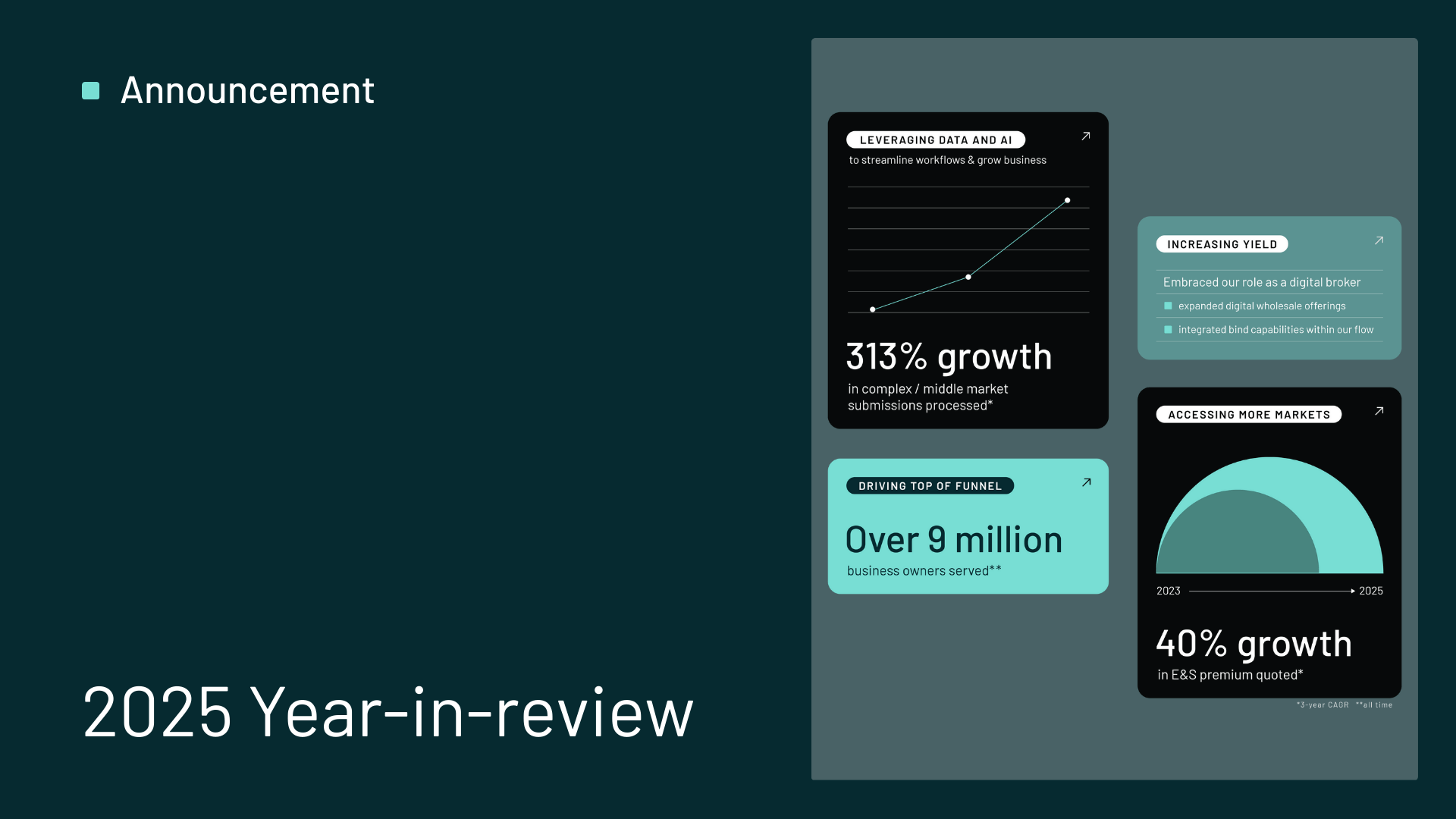How To Start Selling Cyber Insurance Right Now
Webinar highlights importance of cyber insurance for agents, small businesses

Dan Law from Cowbell Cyber joined us to discuss the state of cyber insurance. Cyber insurance is more important than ever, and Dan did a great job of breaking down the basics for everyone. He explained why cyber security is important, what you can do to protect your business, and how to respond to a cyber attack. If you missed it, don't worry - we recorded it! You can find the recording above this post.
As Bold Penguin was interviewing Dan, one theme prevailed: every insurance agent selling to small businesses should be offering cyber insurance. Law confirmed that many insurance agencies have, in fact, made it a requirement to offer cyber insurance as part of every small business offering. In support of this, in a recent Datto SMB Cybersecurity for MSPs report, it was stated that in the last year, 32% of small businesses reported that they dealt with a phishing email or attack. We think we will eventually hit a point where every insurance agent will have a responsibility to offer cyber insurance when presenting multi-carrier insurance quotes to business customers.
Now seems like the perfect time to integrate cyber insurance into a commercial lines quoting process, particularly with the renewal season approaching. In the Evolving Cyber Risk Management Needs Of Small Businesses we outline ways to help when presenting multi-carrier insurance quotes to a business customer, such as conducting regular cyber risk reviews, tailoring coverage, and emphasizing training all employees.
Get appointed by a carrier that offers cyber insurance
There are many options in the market for cyber insurance. One such provider is Cowbell Cyber, which we featured during our webinar and is available on the Bold Penguin platform. In addition to insurance, Cowbell Cyber harnesses technology and data to provide small businesses with advanced warning of cyber risk and customized cyber insurance adaptable to the threats of today and tomorrow. As I spoke with Dan, I was particularly impressed with the data that Cowbell has amassed on millions of businesses in order to properly underwrite each company.
There is an easy way to start quoting Cowbell Cyber insurance — or other cyber insurance carriers like At-Bay, or carriers that offer a wide variety of products that include cyber like Hiscox and Berkley Management Protection: get appointed through Bold Penguin. Set up a demo today to experience the latest in business insurance comparisons.
Explain to the customer why they need cyber insurance
In order to understand the importance of cyber insurance, it can be helpful to use an example or reference recent studies, such as the Hiscox Cyber Readiness Report. Law also talked about the Target breach that allegedly originated from an HVAC contractor work on site.
In late 2013, Target announced that it had suffered a data breach that affected millions of customers. Hackers were able to gain access to Target's computer systems and steal credit and debit card information. The breach caused confusion and concern among Target customers, and the company had to scramble to try to fix the damage. The breach was allegedly caused by an HVAC contractor who installed a malware-infected computer on the retailer's network. The breach affected up to 40 million customers who had their credit and debit card information stolen.
If the contractor in this scenario had cyber insurance, the first step, as suggested by Law during the webinar, is to contact your agent and insurance provider to determine next steps. While the details of the situation matter, cyber insurance acquired by Target or the HVAC company may have provided some coverage, and the carrier would most likely have stepped in with resources and expertise to address the situation. The Target-HVAC contractor example and similar stories can be used to explain the importance of having cyber insurance.
Discuss the different types of cyber insurance policies available
When viewing multi-carrier insurance quotes, you'll notice that the types of cyber insurance policies available vary depending on the insurer. However, most policies will typically cover expenses related to data breaches, including notification costs, credit monitoring for affected individuals, and defense costs in the event of a lawsuit. Other common coverage includes:
- Cyber extortion: Coverage for payments made to ransomware attackers or other criminals who demand money in exchange for not releasing sensitive data or crippling systems.
- Business interruption: Financial reimbursement for lost revenue due to a cyberattack that renders a company's network unusable.
- Liability: Coverage for legal costs and damages awarded to third parties in cases where the company is found to be at fault for a cyber incident.
You'll notice a few differences when conducting business insurance comparisons such as: between first and third-party cyber insurance, the first party cyber insurance covers the insured organization for damages incurred as a result of a cyber attack, while third party cyber insurance covers the insured organization for damages incurred as a result of a cyber attack against another organization. First party cyber insurance is also typically more comprehensive than third-party cyber insurance, covering not only damages to the organization's computer systems and data, but also business interruption losses, intellectual property theft, and extortion.
If you are interested in adding cyber insurance to your commercial lines quoting, Bold Penguin can help - Set up a demo today to experience the latest in business insurance comparisons.



.png)